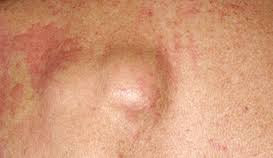Yesterday, the Lakeshore Cancer Center In Nigeria addressed the media on the prevelence on cancer in the country. One of the conclusions drawn from the event is the fact that cancer prevention is the best option in trying to tackle the scourge. But how does one detect cancer in its earliest form? is key in tackling the scourge.
In its early stages, cancer may have no symptoms, but eventually a malignant tumor will grow large enough to be detected.
As it continues to grow, it may press on nerves and produce pain, penetrate bloodvessels and cause bleeding, or interfere with the function of a body organ or system.
Look for these early signs of cancer:
- Changes in bowel or bladder habits
- Sore that doesn't heal
- Unusual bleeding or discharge
- Lumps or thickened areas in the breast, testicles, or elsewhere
- Indigestion or difficulty swallowing
- Change in the size, color, shape, or thickness of a wart, mole, or mouth sore
- Cough or hoarseness that doesn't go away
The following symptoms may also signal some types of cancer:
- Persistent headaches
- Unexplained loss of weight or loss of appetite
- Chronic pain in bones or any other areas of the body
- Persistent fatigue, nausea, or vomiting
- Persistent low-grade fever, either constant or intermittent
- Repeated infection
Make an appointment with a health provider if your symptoms:
- Are on the list of signs of cancer
- Aren't related to another cause
- Last for more than two weeks
If you do have cancer, the sooner you get a diagnosis -- and start treatment -- the more your chances for recovery improve.

